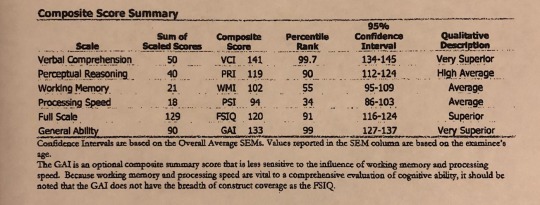#this is likely untrue. ive sat like this before with no issue
Text
sat at my desk for a few mins, then decided to stretch my legs out and lean back, which of course upset the ulcers
WAIT the ulcers often get upset the moment i stand up did i trick them into thinking i stood up…?
#eye guy speaks#uc posting#this is likely untrue. ive sat like this before with no issue#but my brain had the thought so i’m sharing it#it's probably more so the changing of position. like i notice this when lying down#like the act itself always makes me a little nervous bc the ulcers sometimes don't like that..#and also turning onto a different side. or really moving at all#you know you've got problems when you're scared to move
1 note
·
View note
Photo

Shannen Doherty Is Not Signing Off Just Yet
Fighting Stage IV breast cancer has forced some self-reflection, but the ’90s icon and so-called diva refuses to slow down.
By Kate Pickert Sep 29, 2020. Photos by Kurt Iswarienko. Elle USA October 2020 issue
On a cool evening in February 2019, Shannen Doherty invited some friends to a Venice, California, rental house for a dinner party. Doherty’s actual home was in Malibu, 20 miles north, but she and her husband, photographer Kurt Iswarienko, had fled the property a few months earlier, when a wildfire that started inland burned nearly 100,000 acres on its way to the Pacific Ocean. The couple’s house survived the blaze, but Doherty says the property sustained significant damage that made it uninhabitable.
The guest list for the dinner included only people Doherty trusted: her husband and the friends who knew the real Shannen—not the 1990s tabloid caricature, the loudmouthed bad girl with a temper. Actress Sarah Michelle Gellar was there, along with model Anne Marie Kortright, Malibu real estate agent Chris Cortazzo, and a Los Angeles doctor named Lawrence Piro.
Doherty had compiled the guest list, but it was Piro, her oncologist, who drove the conversation. Less than two years earlier, the actress had finished treatment for breast cancer, and Piro was at the dinner to explain that Doherty’s disease was back. The cancer, Piro said, was now metastatic (also known as Stage IV), meaning it had spread beyond Doherty’s breast and lymph nodes. “The way he presented everything to everyone was matter-of-fact,” Doherty, 49, tells me when we speak in June. The news was devastating, of course, and Doherty had invited Piro so her friends could get answers to the questions she knew they would have. Would she die of this? Probably. Would she die soon? Probably not. Why did this happen? It was impossible to know. Could this be treated? Yes, to a point. “Everybody got to ask questions and know what we were looking at as a group, as a team,” Doherty says.

About 300,000 American women are diagnosed with breast cancer every year. In the majority of cases, initial treatment for the disease is effective, curing the patient. But in a significant share of cases, the breast cancer returns, either to the breast or nearby lymph nodes or to other parts of the body. In Doherty’s case, despite the surgery, chemotherapy, and radiation she had undergone after her first diagnosis, it seemed that some cancer cells had survived the assault and made their way to her spine. Eventually, the disease will most likely spread further, to Doherty’s brain, lungs, liver, or some combination thereof.
Still, there was reason for hope, Piro told the group. Treatment for metastatic breast cancer, which was once an automatic death sentence, has advanced in recent years, with patients living longer and having a better quality of life. Some survive for a decade or more. Doherty’s treatment would include hormone therapy to block the estrogen fueling her cancer, plus a second targeted drug that is often effective at stabilizing metastatic disease. If this didn’t work, there were other drug combinations to try, but the bottom line was that Doherty would be in treatment for the rest of her life. As Piro explained all this, his patient sat at the table, listening.

Nearly 30 years after she played Brenda Walsh on Beverly Hills, 90210, Doherty is still striking, with high cheekbones and shiny, jet-black hair. “I think people have a mental picture of Stage IV cancer as someone sitting in a gray hospital gown, looking out a window on their deathbed,” Iswarienko, tells me. “I don’t see a cancer patient when I look at Shannen. I see the same woman I fell in love with. She looks healthy and vital.”
As if a massive wildfire and a metastatic cancer diagnosis weren’t enough, there was more bad news to come. Weeks after the Venice dinner, Doherty’s 90210 costar Luke Perry died suddenly of a massive stroke. After the show, they had grown apart, but they’d reconnected in recent years. They were even talking about working together, developing a new television project.

At a memorial service for Perry in March 2019, Doherty saw Brian Austin Green, the only other 90210 castmate she could call a close friend. Green had known Doherty even before they were onscreen together, and she shared the news of her metastatic diagnosis with him, even though she was keeping it under wraps publicly. Doherty and Green chatted at the memorial, and the conversation eventually shifted to the latest reboot of the show, called BH90210, a scripted-reality version of the old nighttime drama set in the present day. Castmates Tori Spelling and Jennie Garth had helped come up with the idea for the series, which had been green-lighted at Fox, and all the principals of the original had signed on—except Doherty.
Even before her cancer diagnosis, Doherty was dead set against doing the show. “I had already done two 90210s by that point,” she says. “I didn’t really see it as something that was going to help, but I did feel that it could stir up stuff from when I was 19 years old.”
The 1990s made Doherty a household name, but the decade also left scars. She had helped build 90210 and the Fox network into juggernauts, but on and off set, she seemed to run into problems wherever she went. Celebrity tabloids regularly published stories about Doherty fighting with producers, writers, and actors. She was a diva, according to reports. She was a bitch, they said, impossible to deal with. A 1993 People magazine cover declared Doherty “Out of Control!” after the actress’s ex-fiancé accused her in court of threatening him with bodily harm. The story itself, one of many like it, reported that Doherty had “left a trail of bad debts, trashed homes, exhausted friendships, and wasted relationships.” There was even an I Hate Brenda newsletter devoted to bad-mouthing Doherty and her onscreen character. “The more stories that were written about me, the more defensive and closed off I became,” Doherty tells me. “And the bigger the walls I built around me. I had a lot of resentment.”
Doherty had worked hard to move on from that time. When the newest reboot came around, she had long been out of the spotlight, but her relative obscurity had an upside—privacy, which she prized more than anything. She didn’t want to go back, to the tabloids or her castmates. But Green asked her to reconsider. “I was really pitching her: ‘I know it’s going to be fucking hard, but come do it. I think it’ll be really good for you,’ ” Green says. The actors had grown up and were all different people now, Green told her, and so was she. He would act as a buffer if she needed one. “ ‘This is a rare opportunity to experience each other again in a much different way,’ ” Green says he told her.

Perry’s death shifted things for Doherty. Maybe the show could be a sort of tribute to him. Maybe it was a chance to prove to herself that metastatic breast cancer didn’t mean the end of working. Maybe it was both. “Things happen and you go, ‘All right, this is what I’m supposed to be doing at this moment,’ ” she says.
This moment would be different. Doherty had changed, yes, but so had her ability to fight back against negative stories in the celebrity press. “I knew that once I signed up for the show, the bullshit would start all over again. And, in fact, it did,” she says. The reboot’s showrunner and several writers quit before the new show began shooting, and rumors swirled that Doherty was once again acting out. “I addressed it immediately,” Doherty says. On Instagram, she wrote, “I refuse to be cast in the same villain role because ‘journalists’ lack imagination.… I am a woman with my own story.” She wrote that the rumors about her causing upheaval with the new show were untrue and that she was a more complicated person than the headlines made her seem: “I promise,” she wrote, “you don’t know me.”

Part 1 - Part 2
#Shannen Doherty#2020#2020s#2020 photoshoot#Elle magazine#inteview#article#2020 article#2020 magazine#2020 Elle magazine#Kurt Iswarienko#Anne Marie Kortright#Luke Perry#Brian Austin Green#1990s#acting career#Beverly Hills 90210#1990s beverly hills 90210#2019 BH90210#2020 interview#health#breast cancer#stage 4 breast cancer#Sarah Michelle Gellar#2020s photoshots#2020s magazine#2020s article#2020s interview#quotes#2020 quotes
12 notes
·
View notes
Text
Congratulations, Me; You’re Slow
Surprise, me! You’re literally slow. As in, your processing speed - the rate at which your brain takes in stimuli and makes sense of it - is below average. Quantitatively. The average is 100. Yours is 94.
Three years ago, I was given a cognitive battery. I’ve had an unusually high number of these in my life. Most people will never have even one. I’ve had four; one to assess for the Gifted and Talented program in kindergarten, one to reassess for the same when I changed school districts, one to assess for ADHD, and yet another, the latest, to assess for the same, as the prior records were lost. ADHD runs in my family, but I seem to have been one of those kids who compensated really, really well. Was I organized? Not even a little. Lose things? Constantly. I procrastinated like a motherfucker, too, but it was usually easy to make up the work in class before it was due. I would drive hard to complete the GT project-based assignments at the last minute, and always did fine. Better than fine, even. Sure, I used to obsessively braid yarn or draw in class, but nobody had any reason to suspect I would have issues with things like maintaining attention or executive function later on. If they did, I never heard about it. Even today, it’s not obvious; people associate a certain flightiness with ADHD and that isn’t me. People associate a lot of things with ADHD that aren’t me. This has been so much of an issue, in fact, that despite meeting diagnostic criteria over and over, as admitted by clinicians, people have been hesitant to give me the diagnosis. The argument deployed tends to be: you have all the symptoms, but you also have chronic depression, which has the same symptoms, so we’ll just go with that one. The underlying rationale, the unspoken answer to “why can’t it be both? they often co-occur” seems to be: you are too articulate and self-aware to have ADHD. It boils down to you’re too smart to be slow.
This is unfair to me, and demonstrably untrue, besides. I recognized this long ago. I am the one who has to figure out some way to compensate for the symptoms. Yes, the symptoms of depression and ADHD overlap (especially if you are depressed for a long time), but the treatment of those symptoms is not the same. I have been in treatment for depression for over ten years. Am I better than I was? Unquestionably so.
Do I function at a level sustainable for an adult not on disability? Can I get places on time? Can I catch a plane without showing up 14 hours early, lest I show up 14 hours late, or at the wrong airport entirely, instead? Do I remember things people told me yesterday? Can I go to Target without the possibility of getting caught up in a weird cognitive trap where I want bananas, but am too guilty to buy them unless I do the rest of my grocery shopping, which I don’t have the mental energy for? Do I remember enough of my meds when I go on trips? Can I stop persistently putting things in places that make no sense, and then having no idea that I’ve done it 15 seconds later? Can I manage an adult’s schedule? Can I remember to pay bills on time? Can I remember what I’ve spent money on in the last week? Can I remember what I ate this morning? Can I hold down a job that is, honestly, below my abilities in many ways?
The answer is, of course, sometimes yes. Distressingly frequently, it is no. Where travel is concerned, it is always no, and somehow, I have managed to show up at the wrong airport entirely more than once.
Yes, I recognize that these are problems all people have, to some degree, at some time in their lives. If people are willing to act on the belief that I am too smart to be slow, why is it that when I account for my concerns and attempt to articulate the impact they have on my life, I am suddenly not self-aware anymore, and am only overreacting to what obviously MUST be the same degree of these problems that other reasonable adults experience? Why am I credible in other areas, but not this one? If I am so smart, why is it assumed that I’ve failed to account for my own emotional bias when gauging the difficulty I am experiencing? Why is it more satisfying to assume that I am not trying hard enough, then it is to accept that a smart, self-aware person may, in fact, have some kind of Brain Problem that, really, there is no logical contraindication to, and much evidence, for? When I do the responsible thing and insistently pursue all reasonable options to address my mental and neurological health, with the goal of being a functional contributor to society, why is this so persistently reduced to a fetish specifically for an ADHD diagnosis? I’m smart when it’s convenient for others, but not when it comes to the ability to draw cause and effect relationships from my own behavior, and make comparisons between those and the behavior of others? If I got treatment that worked, I wouldn’t care what the diagnosis was. Come the fuck on. I’m tired of this.
-----
Anyway. I sat down with the results of that three-year-old cognitive battery. I’ve read the summary before; it’s peppered with lines like
“There is also considerable other evidence in this testing consistent with a diagnosis of ADHD”
“In my experience, some individuals who are very bright are able to compensate for some of their disability”
“this distribution of index scores is very typical of individuals with ADHD”
“Many of the behaviors she describes are certainly typical of individuals who suffer from ADHD. Unfortunately, the coexisting history of chronic major depression and PTSD make that differential diagnosis based on history alone difficult”
When I first read that last year, I was shocked because the therapist who requested the cognitive battery, only expressed surprise that I was “very smart” and said that my “scores were fine.” When I later confronted him after having read the summary myself, he merely admitted that some of my scores were “lower than others”. He never entertained the possibility that I had ADHD, which in an of itself, wouldn’t have been a problem if he’d been willing to just try the treatments for it, since clearly the two industrial-strength doses of antidepressants I was already on, were not cutting it. Alas, he was not, and it wasn’t until after he retired that the issue was addressed again.
Surprisingly, I was not the person who addressed it. When my therapist-MD retired, I needed at least a primary care provider to manage my medications. Since the appointment was for psych med management, I had to fill out a bunch of related intake forms - you likely know the kind. While looking them over, my new doctor peered up at me and asked, “Has anybody ever suggested that you might have ADHD?” I was taken aback by the question and wasn’t sure where to start. Them? Asking me? if I have ADHD? She asked me?
I told her that I’d had two full cognitive batteries done, and that both of them concluded roughly the same thing: yes, all the symptoms are there, no, we do not know if it’s ADHD because there’s too much background noise from other psych issues. Without skipping a beat, she said the most amazing thing to me:
Well, whatever it is, you have the symptoms, so let’s treat them.
God. Why didn’t someone say that years ago? Diagnoses are human constructs; we use them to group symptoms that tend to occur together, when they’re thought to have the same causes. Depression and ADHD have many (but not all) of the same symptoms, but the overlap doesn’t qualify as a diagnosis because the causes are assumed to be different. I think we often forget that diagnoses are containers for commonalities that we use to make talking about medicine easier, not necessarily biological phenomena unto themselves. If you remember that they are containers - a sort of conceptual shorthand - then it follows that if one treatment for a set of symptoms isn’t solving the problem, you ought to try a different treatment often used for the same symptoms, even if the minutiae of diagnosis means you aren’t sure you can apply the diagnosis typically associated with that second treatment*.
I am now on Vyvanse. Does it magically solve my problems? No. Does it help? Yes. I am in a much better position to actually address the bad habits and coping mechanisms someone like me builds up over the years. The notable insomnia should wear off over time, and besides, as a person with an existing sleep disorder, having fucked up sleep isn’t new. It’s a price I’m willing to pay.
-----
Anyway. So I sat down with the results of that three-year-old cognitive battery, because I had to dig them up for my new therapist. Instead of reading the summary, I dug into the raw numbers: the related tests are the Weschler Adult Intelligence Scale IV (WAIS-IV), and the Weschler Memory Scale III (WMS-III). I couldn’t find sufficient guidance on interpreting the WMS-III, so I’ll stick with the WAIS-IV scores:

At first inspection, these scores do look “fine”. Anything within 10 points of 100 in either direction qualifies as “average”, even if 100 is “the average”. But on further reading, both in the summary and out:
-Examination of these results reveals considerable significant variability between various functional capacities, with VCI of 141 a full 3 standard deviations above PSI of 94.** Problems with both working memory and processing speed impacted her overall IQ considerably, bringing her Full Scale IQ down to 120 (from 133).
-A significant difference among subtest scores can suggest a problem in the particular skill being tested; this might underlie a learning disability. A significant difference among standard Index Scores might also indicate a learning disability, ADHD
-when I see a difference in IQ scores such that the verbal and nonverbal scores are far superior to the processing speed score, I try to discern what could be causing the discrepancy.
-LD diagnoses are also reliant on score discrepancies. On the WAIS, a gifted individual with ADHD may look like this.
Verbal comprehension - 132
Perceptual Reasoning - 129
Processing Speed - 97
Working memory - 101
Absolute scores aren’t the only diagnostic tool. Relative scores are also important. For example, average scores across the board wouldn’t be indicative of a working memory or processing speed issue, whereas great discrepancies between those parameters and others, is - even if the working memory and processing speed scores themselves are the same in both examples. What I’m saying is, it’s right there. It’s in the numbers. There’s no wiggle room. My old therapist saw these numbers, and not only did he choose not to act on the information, he pointedly refused to do so. If he hadn’t retired, I’d look into suing for malpractice. It’s in the god damn numbers, my dude. I don’t care what you want to call it, the deficit is right. there.
What did I ever do to him? Did he just... not believe ADHD is real? More to the point, did he think I somehow, without knowing the ins and outs of the WAIS-IV, faked the deficits or something? Really, guy, what the hell?
-----
Do I feel bad about being slow? Honestly, no. I might have if I found this out 10 years ago, or in circumstances wherein that reality didn’t perfectly explain aspects of my experience that other people have been prone to downplay, or dismiss entirely. Instead, it’s the closest I can get to scientific verification that I’m not just losing my shit over nothing over here; that something has, in fact, gone awry, and may always have been awry. I couldn’t compensate forever (though the ways I’ve done it are many, and in retrospect, interesting) and now I’m on the other end of it, trying to rebuild. I am, as I like to say, building an exoskeleton - something that will hold me up when my brain insists on faceplanting. I’m just grateful there’s someone out there who isn’t too caught up in the semantic navel-gazing of diagnosis, to help.
*There are obvious exceptions here, such as when the two diagnoses have causes whose treatment is contraindicated in the other diagnosis. This is not the case with depression and ADHD.
** You see that Percentile Rank of 34? That means I performed better than 34 percent of people my age, at least according to the test sample. That’s. Not great.
46 notes
·
View notes
Text
You’re my Hero
The Greatest Showman
Dog Boy x female! reader
Warning: walter being insecure
Specifics: romance, fluff, insecurity, self conscious, race neutral reader
People: Walter (dog boy), you, cash register boy, children (mentioned), P.T. Barnum (mentioned), Lavinia Warren Stratton - Tom Thumb’s wife (mentioned)
Words: 1,168
Requested: By anonymously Could you do a fic or headcanons about insecure dog boy x reader? About him being insecure thank you !!💛
Authors Note: i decided to do a fic since ive been doing more headcanons recently. so before u read i didnt realize the first time i wrote for dog boy that his name in the movie was walter, lol ive been calling him fedor this whole time, but his name is walter so thats the name i will use for him for the rest of my days. also there is a ton of fluff in here so FEAST UR EYES! i luv dog boy and i hope u do to. thnx for reading and i would appreciate what u guys think. enjoy the one and only my beautiful bby walter!!!!

The day was such an odd day.
Usually Walter always accompanies you on trips to the circus, where you and him work. His understanding is, “if the mob get to ya I will be right there to protect you.”
You smiled recollecting the fond memories of sweet Walter. But you did miss him. In your mind you felt, at that moment, that you always took him being with you for granted, well not anymore! You felt naked without him by your side.
You stopped by your favorite bakery to get mornings breakfast, seeing if you can spot Walter there. Walter was not.
Your lips turned into a scowl, “blast that beautiful Walter!”
“Ma’am that would be 12 cents.” Whispered the cash register boy as you whipped your head back embarrassed that you said that comment aloud.
“Thank you son,” you said digging into your reticule. Passing him the money.
Finishing your breakfast and entering the circus you were like a hawk, you searched back and forth for Walter. Still no sign of him anywhere!
At this point your hands were starting to sweat profusely. Your heart pounding. You were very worried about Walter, what if something happened to him? What if he was hurt or worse?
That’s when you started to ask others and see if they had noticed if Walter was around.
Some shook their heads while others said he was in his dressing room.
“Thank you all so much.” You shook hands as you sprinted to his room.
Your face grew with concern, “funny. Walter never closes his door.”
Calming your footsteps you stood in front of the dark brown wooden door. You waited patiently for just a second to see if he realized you were there. But no Walter. You then gently knocked on the door.
Still no answer.
You knocked again, louder this time.
But still no answer.
A third time you knocked louder and more rapidly while calling out his name.
Finally, the door swung open.
“What do you want y/n?” Asked a gloomy looking Walter.
“Walter, do you realize how frightened I was? You didn’t answer and more you didn’t welcome me in our morning walk we do every day. Now what is your reason for all this chaos?”
Walter looked down and sniffled. “Please come inside y/n.”
Your eyebrows raised in alarm. What was wrong with Walter?
You entered into his room and he motioned his hand for you to sit. You listened and sat by him.
You sat in front of him the way Mr. Barnum sat with Mrs. Lavinia Warren Stratton, Tom Thumbs wife. He said he sits with her, since she is so small, knee to knee, their faces only a few spaces apart. The information they are talking about only reaching their ears only.
You scooted closer to Walter, knees to knees, faces so close to each other.
“What is the matter my sweet Walter?”
Walter smiled at that but then his smile faded. “Today as I went to go greet you, like I do every morning, I saw this group of children staring at me-”
“Walter you know young people, some just don’t understand. That’s why we have this circus, to teach the new generation that we should not judge others.”
“No you see that’s not it!”
“Oh, then what is it love?”
Walter fumbled with his words then with a loud frustrated shriek stood up, his anger evident. Then the anger subsided into sadness.
“The kids we’re talking about how amazing I was and how they liked me a lot when they saw me at the circus. They thought I was, as if in a way, their hero.”
You scratched your head trying to find what the issue is. “I’m sorry I don’t follow. I don’t see what the problem is here?”
Walter brushed his hands through his hair and heaved a big sigh. “The problem is people think I’m this big spectacular thing and I’m not that. I still feel like a failure and insecure in my own skin, and I don’t know why. I also feel as if what those kids said is untrue, they give me too much credit. I’m not this important thing.”
Your heart ached to know that Walter still felt insecure about himself. You felt what those children said about him was right, he is this incredible person and in your eyes he is a hero.
Walter leaned against the wall close to the window. The sun was bright and perfect, just like Walter.
You stood up and wrapped your arms around him. “Sweetheart listen to me.” You then kissed him sweetly on his clothed shoulder. “I understand why you would still feel insecure and feel not highly of yourself. But what the youth said was truth. You are spectacular, you are an example to the young and old. You reprimand the world and their small minded thinking by showing them that you can do it, that it is possible.”
“I don’t feel I deserve this though. My whole life I’ve been told horrid things and it still sticks with me to this day. Sometimes those thoughts still reside in my hollow self.”
You walked in front of Walter and gently guided his face to you. You softly kissed his cheek making Walter’s eyes seem to smile to you.
“You deserve the world Walter and more. I hate what people have told you, they have no right! I know it will take some time for you too see how beautiful and gracious you are. Just know every bit of what those children said was true, and that to me you are my hero.”
Walter gave you a look of adoration a look of love. “Oh my love!” He cried out tears falling from his eyes. He then got on both his knees and praised your feet right there. Hugging your legs and going on his hands and knees, thanking you for loving him and thanking you for staying with him and actually finding him worthy of your time.
Your heart broke down to see this because this person you call your love finds the need to thank you and to praise you like an idol for loving him. It bewildered you to the point where you also got on your knees and hugged him as well.
You embraced Walter with your every being, with everything that you had. You gave him kisses all over his face, not caring about his extra hair.
“I love you dearly Walter. I love you so much!” You spoke fondly while grasping his two hands.
Walter smiled while shedding some tears and came closer to you. His head rested on your forehead enjoying your company. Then his lips came closer to yours and you two shared a kiss. The kiss was small and needed but so full of love.
“I want you to always lean on me Walter. To tell me how you’re feeling, because I will always be here to love you, no matter what.”
#the greatest showman#tgs#x reader#the greatest showman x reader#tgs x reader#one shot#the greatest showman dog boy#dog boy#dog boy x reader#walter#the greatest showman walter#fedor jeftichew#fedor jeftichew x reader#walter x reader#the greatest showman walter x reader#fluff#romance#insecutiry#self conscious#race neutral reader#musical#the greatest showman oddities#zendaya#hugh jackman#keala settle#zac efron#requested#my writing#you re my hero
44 notes
·
View notes
Text
My best friend forgot about my Birthday.
Well im on that 2/3 part of my thesis and I wana die again. Trying to be positive I promise. Its due a day from tomorrow dont know of im going to finish I just want it to be over dear god. Last thursday was my birthday. I took the day off ecept for a little work. I took myself to get a massage Z and jill got me a gift certificate for christmas. It was pretty good she did almost pop my hip out of my socket though so dont know if id do it again. I didnt really know what to do with myself. There was no one I really wanted to see. No one who wanted to see me. So I went to rei. Was unsucessful. Then took myself to a movie. My phone died so I sat in the lobby and journaled for a long time which was pleasent. Despite the stares from the pre pubesant popcorn boys. I saw captain marvel. And it was pretty good. I drove all the way home with the windows down and just sang my heart out to some first aid kit. Ok well I went to the met first. Got myself some shortcake and strawberries and bc its my birthday and I get to break the rules. Whipped cream. Twas amazing. Oh also before the movie I got takeout from a pho place and sat in my car in a random park to eat dinner. It was mildly unpleasent. After that I went to this bar with a few friends and it was terrible. I left within the hour. It felt like high school but on open display to a bunch of old white dudes. Anyway. A friend talked to me a while back that D might not care for me as much as I might care for her. Which sounds shitty but she didnt mean it to be. And I dont think its untrue. I know D gets wrapped up in the guys shes with. And my love language is taking care of other people. But whenever we are together shell say stuff about how we are best friends and I have a hard time beleiving she means it sometimes. I could never say that to her face. It would really hurt her. But it just sucks to be forgotten about. By someone who says theyll be there for you and you are there for them. Its not a competition. But sometimes it feels as if im just throwing my energy at nothing. Honestly. The only people who wished me hapoy birthday who arent at my university were my highschool bully and A who Ive thought has been mad at me for ages and I cant figure out why. I guess I need to follow suit of what I did with N. I want to be close so bad and I miss them so much that I have expectations and its not their fault they dont meet them or dont want too. I need to check my self and my relationships with how I feel about them. Just when I think about it I feel very very alone. I need to take a step back bc im putting things on them they didnt ask for. And its more of a me issue than them. It eill just be hard for a while but it will get easier. Dani did take me out the day after my birthday. She got me a gift and all. I had a really amazing time. Im so lucky to have her.
Oh yeah I forgot. The real kickin the pants about this whole thing was I was on snapchat and saw D was in seattle the the day before my birthday with her bf visitinf her sister. And I texted her about it and all she said was she forgot to tell be becuase it was last minute which is faire. But its also a 9hr car ride. Up from the bay area. So there was a fair chunk of time to let me know. And then on my actual birthday she posted a picture of her dog and her bf celebrating the dogs birthday.
0 notes
Text
Kopf: Is Sentencing The Hardest Thing A Federal Judge Does?
I wish to spend a little of your time answering the foregoing question. My answer may make you sad. It might also enrage you. I hope it doesn’t bore you.
A recent case out of the Second Circuit, featured in Doug Berman’s wonderful blog, is a good place to begin. In United States v. Singh (2d Cir. Dec. 12, 2017), the defendant pleaded guilty to one count of illegally reentering the United States after having been removed following a conviction for an aggravated felony. His Guidelines range was 15 to 21 months’ imprisonment, and both the government and the probation office recommended a within‐Guidelines sentence. The district court, however, sentenced Singh to a term of imprisonment of 60 months—nearly three times the top of the Guidelines range.
The Second Circuit vacated the defendant’s sentence. Particularly in the context of the Sentencing Commission’s statistics on sentences for illegal-reentry cases, the court was not persuaded that the justification offered by Judge Forrest (who took Judge Rakoff’s seat when he assumed senior status) was sufficient to support the magnitude of the variance.
The Second Circuit also believed that there may have been factual errors in the judge’s discussion of the record, and the district court’s reluctance to credit the defendant’s acceptance of responsibility (although it did so in the end) suggested that the court might have conflated the defendant’s statements in mitigation with a failure to accept responsibility. Accordingly, the court remanded for resentencing.
In doing so, the Second Circuit stated the following:
“Sentencing, that is to say punishment, is perhaps the most difficult task of a trial court judge.” Jack B. Weinstein, Does Religion Have a Role in Criminal Sentencing?, 23 Touro L. Rev. 539, 539 (2007). While there are many competing considerations in every sentencing decision, a sentencing judge must have some understanding of “the diverse frailties of humankind.” See Woodson v. North Carolina, 428 U.S. 280, 304 (1976) (plurality opinion). In deciding what sentence will be “sufficient, but not greater than necessary” to further the goals of punishment, 18 U.S.C. § 3553(a), a sentencing judge must have a “generosity of spirit, that compassion which causes one to know what it is like to be in trouble and in pain.” Guido Calabresi, What Makes a Judge Great: To A. Leon Higginbotham, Jr., 142 U. Pa. L. Rev. 513, 513 (1993); see also Edward J. Devitt, Ten Commandments for the New Judge, 65 A.B.A. J. 574 (1979), reprinted in 82 F.R.D. 209, 209 (1979) (“Be kind. If we judges could possess but one attribute, it should be a kind and understanding heart. The bench is no place for cruel or callous people regardless of their other qualities and abilities. There is no burden more onerous than imposing sentence in criminal cases.”).
Slip. Op. at pp. 29-30.
Is sentencing truly “the most difficult task of a trial court judge”? With sincere respect for the great judges who have said such things[i], that sentiment is pure pabulum.
In terms of legal and factual difficulty, sentencing is normally relatively easy. That becomes truer as a sentencing judge gains experience. And here, I am not talking about becoming jaded, although that is always a risk.
It is a fact that sentencing is frequently unpleasant. Sending people to prison is a nasty business. Yet, for better or worse, we judges must sentence.
What bothers me about the sentiment that I critique (“sentencing is the most difficult task of a trial court judge”) is not only that it is frequently and objectively untrue, but that it can be used as a backhanded way of seeking sympathy for judges or, worse yet, as an excuse for doing whatever we judges want to do.
Poor us! Watch us wring our hands and nearly weep about that which we are compelled to do.
For goodness sake, we federal judges have lifetime tenure; great legal help from brilliant law clerks; extremely detailed presentence reports prepared by smart and diligent federal probation officers; mostly great lawyers who appear before us; fancy offices and all the rest of the benefits that go with enthronement under Article III. At least in opinions, we should quit uttering such nonsense.
Now, I will engage, minimally I hope, in a bit of obligatory Gertruding.[ii] We should not be cruel when we sentence. We should never be cavalier. We ought to treat defendants with the dignity that all human beings should be accorded by decent men and women. There is no harm in being empathetic so long as we are not credulous. We should seek to emulate the “golden mean” of the wily old Greeks. But we should not kid ourselves or anyone else.
In the vast majority of cases, sentencing is not all that hard. Oh, and by the way, had I sat on the Second Circuit[iii], I would have voted to reverse too.[iv] The sentence was goofy.[v] Parenthetically, I am pretty sure that there is a Latin word for goofy, but damn if I can find it.[vi]
Richard G. Kopf
Senior United States District Judge (Nebraska)
[i] Hell, I probably have repeated those words or something similar myself, and I am not, nor will I ever be, in the same universe as judges like Jack Weinstein.
[ii] See the top definition and the unicorn example.
[iii] Happily, the chances of this happening are exactly zero.
[iv] It took the Second Circuit more than nine months to issue the opinion. The opinion is 31 pages long. I see no earthly reason why it took so long and required the killing of so many trees.
[v] To be fair, I am the master of goofy sentences.
[vi] Where is David Meyer-Lindenberg when you need him? Probably out chasing some svelte Canadian curler.
Copyright © 2007-2017 Simple Justice NY, LLC
This feed is for personal, non-commercial and Newstex use only.
The use of this feed anywhere else violates copyright. If this content is not in your news reader, it means the page you are viewing infringes copyright. (Digital Fingerprint:
51981395c77d7762065ca2c084b63e47)
Kopf: Is Sentencing The Hardest Thing A Federal Judge Does? republished via Simple Justice
0 notes